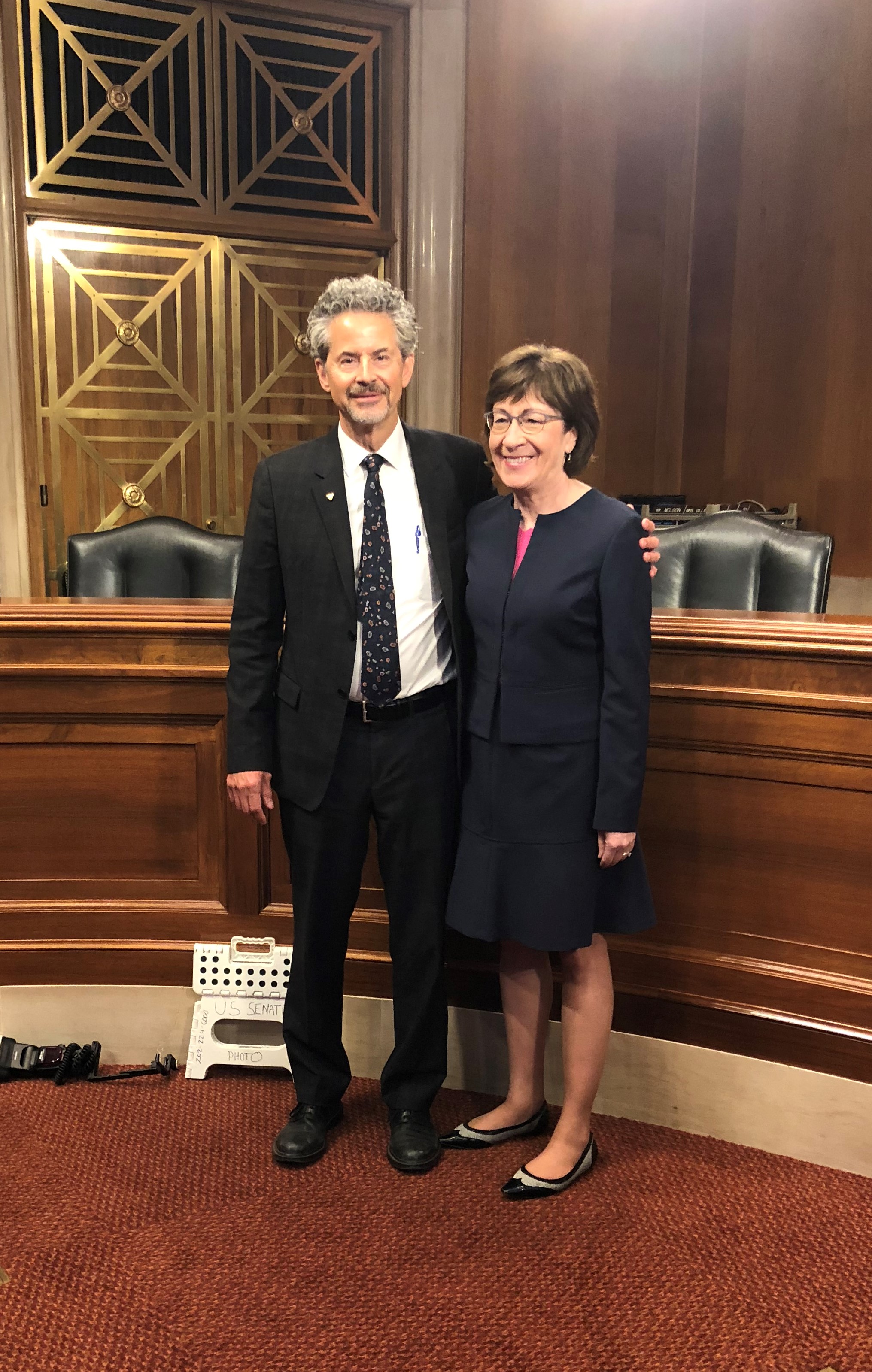Bangor Emergency Medicine Physician Testifies on Opioid Crisis’ Effect on Older Americans

Click HERE for a high-quality photo of Senator Collins and Dr. Pattavina
Click HERE for b-roll of Senator Collins and Dr. Pattavina
Click HERE to read Senator Collins’ opening statement
Click HERE to watch Senator Collins’ opening statement. Click HERE for high-quality video.
Click HERE and HERE to watch Senator Collins’ Q&A with Dr. Pattavina. Click HERE and HERE for high-quality video.
Washington, D.C.—Every day, emergency medicine physician Dr. Charles Pattavina sees patients affected by prescription drug addiction, many of whom are older, at Saint Joseph Hospital in Bangor.
At the invitation of U.S. Senator Susan Collins, the Chairman of the Senate Aging Committee, Dr. Pattavina testified at a hearing today focused on the continued challenges of identifying opioid misuse among older adults, the efforts to reduce seniors’ dependence on opioids, and the need to expand access to treatment for those battling addiction. Dr. Pattavina discussed his experience treating this population, which is often overlooked in the current opioid crisis.
“While the effects of the opioid epidemic on seniors are in large part similar to the effects on the population as a whole, the epidemic does present some unique challenges for older Americans,” said Dr. Pattavina.
Dr. Pattavina explained how increased incidences of comorbidities and acute illnesses and injuries among older Americans make them more susceptible to opioid misuse. Health care providers play a critical role in ensuring older adults’ pain is managed while reducing the risk for addiction. Dr. Pattavina noted that education and outreach efforts as well as Maine’s prescription monitoring program help reduce the number of overprescribing outliers.
To assist those facing addiction, Dr. Pattavina called for removing barriers to inpatient residential treatment and medication assisted therapy, as well as addressing the shortage of psychiatric services. He also observed that seniors are affected by the opioid epidemic in other ways beyond prescription drug abuse.
“In addition to being at risk for crime such as having their medications stolen and diverted by caretakers, family members, and others, we are seeing many cases in which people who have become dependent on these medications seem to be tapered off them too quickly with little offered in the way of alternative pain management,” Dr. Pattavina continued.
“Many perceive the face of opioid addiction as young. The epidemic, however, intersects just as much with older adults,” said Senator Collins. “While there is no silver bullet to ending this scourge, Congress and this Committee are fighting back on multiple fronts. We are making progress, but we must continue to reexamine this issue from every angle, as the opioid crisis continues to tighten its grip not only on older adults, but also on the future generations of America.”
In 2016, one in three people with Medicare Part D—14.4 million beneficiaries—received an opioid prescription, 500,000 received high amounts of opioids, and 90,000 were at “serious risk” of misuse or overdose according to the Department of Health and Human Services Office of Inspector General (HHS OIG). The Substance Abuse and Mental Health Services Administration also reported that opioid misuse doubled between 2002 and 2014 among Americans ages 50 and older. Last year, the CDC reported that the amount of opioids prescribed in 2015 was enough for every American to be medicated around the clock for three weeks.